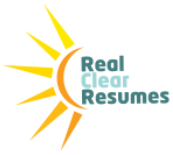This next blog installment covers four more pathway sketches. Keep in mind that these are not meant to be exhaustive or definitive – nonetheless, you may find them helpful as you review how your career has developed. Self-understanding is be a beautiful thing
3. Single Employer: Though more common in decades past and more rare today, some have been employed by only one company in their entire career. Often this occurs in very large companies or even family-owned businesses. Typically there is plenty of room to grow in consistently contributing through different and progressive positions over time. Such stability within healthy work environments can nurture deep confidence. However, entering a job search can be a real challenge because potential employers may wonder about freshness and nimbleness in a new corporate culture. If this has been your experience, you should recognize the trade-offs between workplace stability and pushing the reset button to start anew!
Pluses: a. opportunity to learn and perform a lot of different tasks and functions within a specific culture. b. building a track record of steady achievement and wide impact.
Minuses: a. tendency to lose competitive edge due to predictable work environment. b. professional development limited to a single company culture – which may not be a good one!
4. Family-Owned Business: A time-honored tradition in American business is the family enterprise, started years or generations ago – this combined with another American tradition, the pioneering impulse, creates that a unique setting for people to succeed within “tight” familial situations. The opportunities for achieving big things or enduring a really rough working environment are equally possible. Being a family member usually means working up the job chain through different roles. Those qualified candidates coming in from the outside can also earn a solid framework of trust and loyalty from the owners. No doubt the challenges will be many and unpredictable, but so are the job rewards of compensation and satisfaction. A big trick can be smoothly navigating the “reality show” drama – different from what happens than in other businesses since family bonds will permeate the culture and take things to new levels – in good or bad ways!
Pluses: a. more direct opportunities for family or non-family workers to have an ongoing impact. b. job stability and security are available within the right culture.
Minuses: a. toxic family dynamics can produce emotional buzz saws of tension and negativity. b. a certain lack of operational nimbleness or flexibility is common, hindering quick responses to shifting market conditions.
5. Military Transition: The American business world is filled with men and women who have served their country honorably in all US military services. These veterans have given years or even entire careers to potential hazardous jobs, but now look to transition to commercial settings and wonder how this specialized background will translate. Fortunately, our current society generally values such workers more than ever with respect and appreciation. The immediate challenge is positioning specific skill sets in ways that employers will understand. Of course, there are already many veterans who already made the shift and can provide at least an initial point of contact and support. There are also many non-profits available to assist and orient veterans through various hurdles. High-ranking officers, academy graduates and leaders with extensive high-tech backgrounds can enjoy particular advantages.
Pluses: a. advantage of having acquired a vast array of deep training, experience and transferrable skills within a matrixed organization. b. veterans tend to organize, motivate and lead teams better in achieving goals and objectives.
Minuses: a. initial challenge of moving into a profit-driven business environment. b. team dynamics are more nuanced and less authoritarian than following orders within distinct changes of command.
6. Consulting: More common in today’s business landscape than 50 years ago are management consultants, professional services firms and similar providers for pretty much all industry sectors (IT, HR, Accounting, etc.). Lots of big names and market leaders: CapGemini, Marsh & McLennan, Randstad, McKinsey, Boston Consulting, etc., operate across national borders. Many professionals start with these companies right out of university through entry-level jobs – others transition from corporate structures, bringing with a wealth of expert knowledge. These consulting entities focus on providing their deliverables in such terms as productivity, efficiencies or profitability through short-term projects or long-term engagements. Those who thrive in this professional lifestyle can find it very fulfilling and significant, even if they have to please, in a real sense, two different bosses – their client onsite and the home office. The profit motive is still critical since there remains strong market competition for the same customers and accounts in this small industry universe.
Pluses: a. transferrable skills applicable for corporate settings include teamwork, project accountability, high EQ and timely deliverables. b. deep professional satisfaction earned from successful engagements without corporate “red tape” and potentially big performance bonuses.
Minuses: a. potential lack of long-term job stability due to short-term engagements or revolving roles. b. loss of professional career momentum by staying at same level over long period of time and foregoing potential promotions.







Leave A Comment